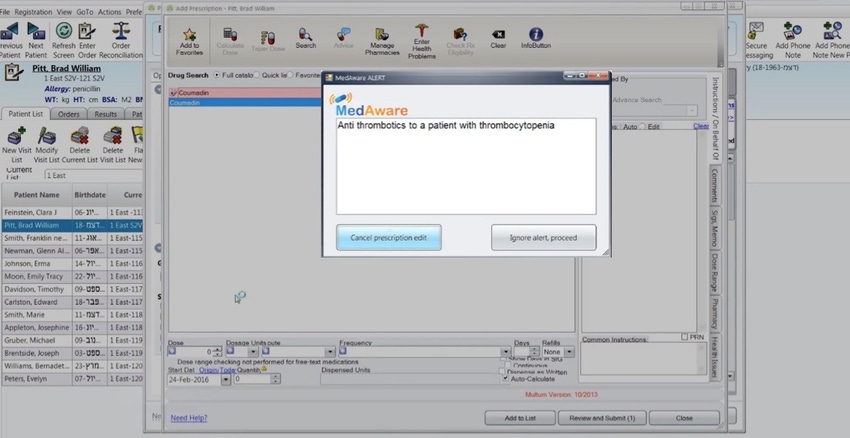MedAware finds a partner in Allscripts as it moves forward with commercialization efforts in the U.S.
June 21, 2018

Artificial intelligence has been used in a wide variety of devices and services in healthcare. MedAware is using AI and machine learning to help tackle medication errors and abuse of opioids. The Raanana, Israel-based company will collaborate with Allscripts Healthcare Solutions to tackle the problem.
“A systematic problem calls for a systemic solution,” Gidi Stein, MedAware’s co-founder and CEO, told MD+DI. “We came in trying to tackle this problem using machine learning and AI on large scale electronic medical records.”
Under this collaboration, Allscripts will implement MedAware’s machine learning-enabled decision support and patient safety solutions to the dbMotion, a healthcare information exchange platform, to provide better patient care.
In order to provide actionable insights at the point of care and after the script was already filled, MedAware monitors patients’ clinical records to detect medication-related risks, evolving adverse drug events (ADEs), and to identify patient-specific risk of opioid dependency. As a result, in live clinical settings, providers mostly choose to revise their prescriptions when they are notified of such risks from MedAware.
MedAware said this level of success is achieved by using its medication monitoring technology that leverages machine-learning algorithms and outlier detection mechanisms to identify adverse drug events and flag potentially life-threatening prescriptions that are in conflict with the profile of the patient, physician, or institution.
The company was formed in 2012 and raised about $8 million in a series A round.
“We’re now in the midst of our series B [round], and the goal of this round is to accelerate the sales and marketing in the U.S.,” Stein said. “Since the founding of the company and development of the core technology and proof of concept in leading institutions … we’re able to pursue the U.S. market.”
MedAware’s business model would not have been quite as effective 10 years ago, Stein said.
“Today, there are several factors to make such a business grow, as opposed to 10 years ago,” he said. “Ten years ago, patient medical record usage was about 10% to 20% in healthcare intuitions in the U.S. … now it’s over 90%. “I think the understanding and the entrance of interoperability followed by meaningful [are key factors].”
He added, there is also more of a focus on stopping medical errors than it was a decade ago.
About the Author(s)
You May Also Like




